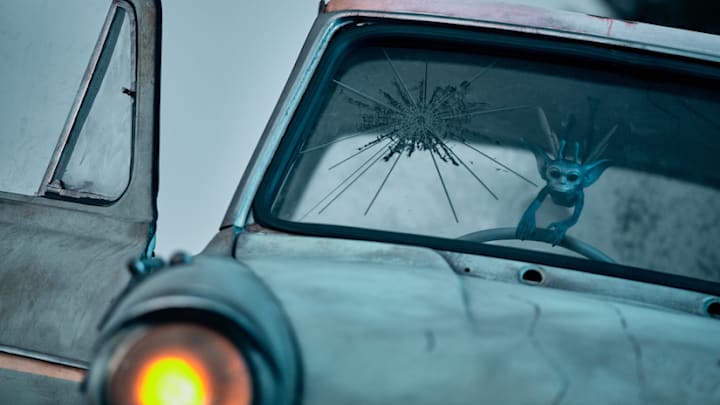In the early days of Harry Potter’s magical adventure, the young wizard learns that his parents left him a substantial inheritance—one surprisingly guarded from his devious aunt and uncle. Gamekeeper Hagrid fills Harry in on the savings upon their first meeting and later escorts him to Gringotts Bank where the wizard-to-be catches a glimpse of the riches belonging to him. The story only offers one real-world comparison, measuring the Potters' fortune to that of his best friend's family. Harry's vault is described as being slightly more substantial than the Weasleys.
A point of contention that has seemingly gone overlooked is why Harry Potter never takes advantage of his Scrooge McDuck-type vault after his first year at Hogwarts. There are a hundred situations where the aspiring wizard could’ve easily used his savings to solve a problem for himself and his friends, yet he never does so. Chalk it up to Harry not realizing that money solves most issues, but even kids understand the advantage of wealth. So, Harry's neglecting to use the funds when necessary raises questions of why.
Harry Potter Stops Using His Inheritance

In The Chamber of Secrets, for example, Ron snaps his wand while on an unsanctioned excursion to Hogwarts. While Harry doesn't intentionally break Weasley's wand, he is responsible. One might assume the righteous Harry Potter would seek to rectify the misgiving, but he never broaches the subject. Perhaps Harry proposes the purchase to him in an exchange off to the side, and Ron rejects the gift because his pride won't allow him to accept charity. However, it still begs to ask why the young sorcerer fails to utilize his fortune when it counts.
In a similar debacle, Harry had multiple opportunities to help the Weasleys when it came time to purchase school materials for Ron, Fred, George, and Ginny. Yet, he never proposes splitting his savings with them—despite the Weasleys welcoming Harry into their home. Mind you, one possibility is Mr. and Mrs. Weasley had an honest conversation with Harry about the money and told him to keep it. The cinematic adaptation of these characters always seemed sure of their living situation even when Ron or another of the kids expressed worry, so there’s good reason to believe they were okay financially.
What Harry Could've Done With The Money
The point still stands. Harry could’ve spent his fortune on his friends during moments of being outclassed, particularly against Draco Malfoy. When Malfoy’s father purchases brand-new brooms for the Slytherin Quidditch team, Harry never even proposes upgrading his gear or that of his teammates. He may not have had enough money to buy the whole squad new brooms, though one for himself and the team captain sounds reasonable—potentially making the difference in the match. Harry inevitably wins, but if his broom had been a little better, it would've saved him a broken limb.
In any case, Harry's fortune sits virtually untouched. Besides occasional trips to withdraw funds for school supplies, his transactions remain few and far between. There is, however, a chance it factored into the aftermath of Voldemort's attack. Helping rebuild the survivor's lives would be the best way Harry could show his gratitude, giving the money a defining purpose instead of being disposable income for an underaged wizard. Of course, neither the last book nor The Deathly Hallows Part Two addresses the money, so fans may never know what became of Harry Potter's fortune.
The Harry Potter series is currently streaming on Peacock and MAX.
